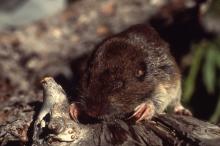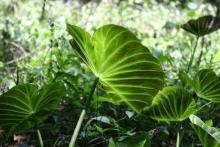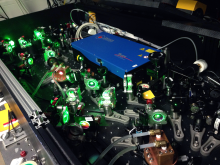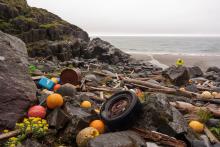News
-

Global warming pushing alpine species higher and higher
September 10, 2018
For every one-degree-Celsius increase in temperature, mountaintop species shift upslope 100 metres, shrinking their inhabited area and resulting in dramatic population declines, new research by University of British Columbia zoologists has found. The study—the first broad review of its kind… read more
-

New theory on how Earth’s subduction zones formed
August 28, 2018
New research from scientists in Canada, the Netherlands, Norway and the UK indicates that some of Earth’s most active seismic zones were formed by plate tectonic changes elsewhere on the planet. Previously, it was widely assumed that these fault zones—called subduction zones&mdash… read more
-

UBC researchers unlock secrets of plant development
August 23, 2018
University of British Columbia researchers have discovered an internal messaging system that plants use to manage the growth and division of their cells. These growth-management processes are critical for all organisms, because without them, cells can proliferate out of control—as they do… read more
-

Canadian laser breakthrough has physicists close to cooling down antimatter
August 22, 2018
For the first time, physicists at CERN have observed a benchmark atomic energy transition in antihydrogen, a major step toward cooling and manipulating the basic form of antimatter. “The Lyman-alpha transition is the most basic, important transition in regular hydrogen atoms, and to capture… read more
-

Gut enzymes could hold key to producing universal blood
August 21, 2018
For blood transfusions to be safe, the donor and patient blood types must match. Now researchers at the University of British Columbia have identified a new, more powerful group of enzymes that can turn any type of blood into the universally usable type O—expanding the pool of potential… read more
-

Super-resolution microscope reveals secrets of deadly Nipah virus
August 16, 2018
The deadly Nipah virus and others like it assemble themselves in a much more haphazard manner than previously thought, new UBC research has found. The discovery could allow scientists to develop more effective vaccines and rule out many approaches to fighting these viruses. Chemistry professor… read more
-
How an award-winning UBC prof gets students excited about science
August 14, 2018
Zoologist and teaching fanatic Angie O’Neill (BSc 01, MSc 05) fell in love with teaching in 2001, as a TA. That passion has earned O’Neill two Faculty of Science Killam Prizes for Excellence in Teaching, and high praise from her students. What makes a good teacher? Giving students a… read more
-

Cigarettes account for half of waste recovered on Vancouver and Victoria shorelines
August 2, 2018
Plastic waste—particularly from smoking– still dominates litter collected from B.C. coastlines, a recent study from the University of British Columbia has found. UBC researchers analysed data from 1,226 voluntary cleanups organized by the Great Canadian Shoreline Cleanup (GCSC), a… read more
-

Fishing fleets travelling further to catch fewer fish
August 1, 2018
Industrial fishing fleets have doubled the distance they travel to fishing grounds since 1950 but catch only a third of what they did 65 years ago per kilometre travelled, a new study has found. Researchers from from the Sea Around Us initiative at the University of Western Australia and the… read more
-

UBC researcher appointed UN expert on human rights and the environment
August 1, 2018
This August, UBC researcher David Boyd takes on the role of Special Rapporteur on human rights and the environment for the UN Human Rights Council. In this Q+A, he discusses priorities for his three-year mandate, and where Canada fits into the international context. How are human rights… read more
